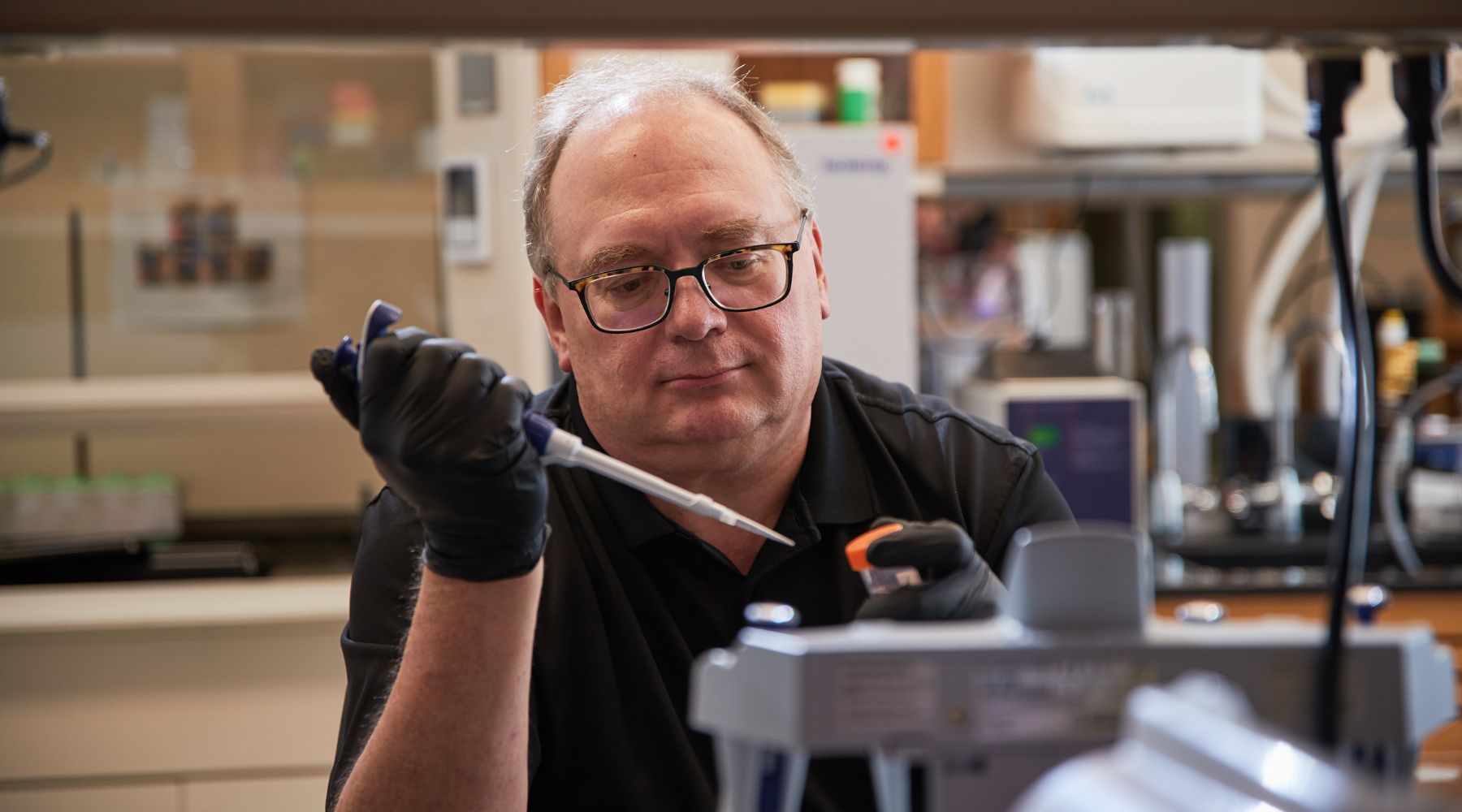Certain combinations of molecules in our blood may help identify those at highest risk of developing lupus, an Oklahoma Medical Research Foundation scientist believes.
Joel Guthridge, Ph.D., hopes to uncover those secrets of the autoimmune disease with a new $6.3 million grant from the National Institutes of Health. The research project is called MONA-LISA, short for Mechanisms of New-Onset Autoimmunity-Longitudinal Immune Systems Analysis.
His goal is simple: “If we can better detect who will progress to lupus, we stand a far better chance of treating them early, perhaps even before their symptoms manifest,” Guthridge said. “On the flip side,” he said, “we hope to learn why some people who are at risk but are asymptomatic or have very mild symptoms never progress to full-blown disease.”
Lupus, a top-10 medical cause of death in young women, has puzzled scientists and clinicians for more than a century. It can affect any organ in the body, and symptoms can differ from person to person. Some common lupus symptoms include extreme fatigue, skin rashes, fevers, anemia, sensitivity to the sun, and joint pain or swelling.
Women – particularly those of childbearing age and of minority racial and ethnic groups – are at greatest risk of developing the most common form, systemic lupus erythematosus, according to the Centers for Disease Control and Prevention.
Lupus most often features periods of flares and remission. Its causes are not well understood, but scientists believe it is linked to genetics, along with environmental and other factors.
Existing drugs can treat lupus symptoms. However, no single test can detect the disease, which adds to the difficulty of its diagnosis.
MONA-LISA is a collaboration between Guthridge and physician-scientist David Karp, M.D., Ph.D., at the University of Texas Southwestern Medical Center in Dallas, and other team members. They will study existing data and samples from an earlier lupus-prevention study known as the SMILE trial.
To enhance the MONA-LISA study, OMRF is seeking new participants. To qualify, a person must have a positive test for antinuclear antibodies and at least one other lupus symptom. To participate in the study or receive more information, call 405-271-7221.
“With this new grant, Dr. Guthridge focuses on understanding what changes in a person’s blood when they are transitioning to a lupus patient,” said OMRF Executive Vice President & Chief Medical Officer Judith James, M.D., Ph.D. “I’m excited to see what we learn, as it could very well transform future lupus-prevention studies.”
Guthridge’s grant, No. 1U01AI176135-01, is from the National Institute of Allergy and Infectious Diseases, part of the NIH.



